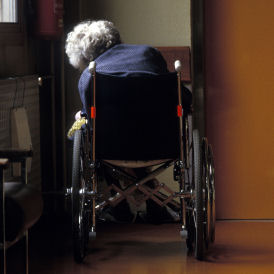Cash crisis threat to 750 care homes
Care home provider Southern Cross cuts its rent payments by a third as the firm struggles to keep its 750 residential homes open for business.
British care home operator Southern Cross, which provides residential and nursing care for around 31,000 elderly and disabled people, has decided to withhold one third of its rental payments while it tries to sort out a rescue package over the next four months. The company hopes to win support from enough of its landlords to prevent a mass closure.
The company’s chairman Christopher Fisher said: “We believe that all of the key stakeholders in Southern Cross want this restructuring to succeed. We are in dialogue with the Department of Health, our lenders and landlords and they continue to support the process.”
Not all, however, are on side; according to the Financial Times, Bondcare, a company which provides residential care homes and medical services in the UK and owns 40 of Southern Cross’s 750 homes, says it will not support the proposal.
Regulating the care sector
Saga's Dr Ros Altmann tells Channel 4 News: "The problem is there are no proper mechanisms for the care sector it's like the banks. I would argue that it's even more important to regulate the care sector than the banking sector." Read the full article Care sector needs regulation 'like the banks' here.

Mr Fisher said: “Those landlords that do not want to take part in the longer term restructuring will be able to review other options but it is in everyone’s interests if this is as part of a larger, managed and orderly process.”
The company recently warned it was in a “critical financial condition” as it unveiled a £311m loss in the six months to 31 March. Southern Cross’s current difficulties stem from a financial structure which has become unsustainable in the current economic climate. The company had previously sold the buildings which housed its care homes – and then rented them back from landlords under long-term leases which included an annual rent increase of about 2.5 per cent.
Falling admissions, falling profits
When Government cuts resulted in declining local authority admissions (with authorities increasingly trying to keep people in their homes) and a squeeze on fees, the annual rental bill of £230m became unmanageable. Councils and the NHS account for 70 per cent of the company’s patients, and with a decline of 15 per cent in the first half of Southern Cross’s financial year, occupancy dropped by 3 per cent to just under 87 per cent.
Amid growing concern abut what will happen to residents should the rescue plan fall through, Mr Fisher said Southern Cross’s “primary concern is the continuity of care to all our 31,000 residents.”
GMB, the union which has around 12,000 members working in the Southern Cross care homes has called on the Government to step in to end the current “uncertainty”. General secretary Paul Kenny said: “The GMB is calling on politicians across the country to step in and sort out the uncertainty that surrounds the future of these care homes.
“These are not factories facing closure, they are a vital part of the social fabric of every community.”
Care Services Minister Paul Burstow said his greatest concern is the welfare of Southern Cross residents: “Ministers are following events carefully and officials at the Department of Health are in regular contact with the company’s senior management, the Care Quality Commission and local authorities.
“It is for Southern Cross, its landlords and those with a stake in the business to put in place a plan to put the company on a firm footing. That is what they are doing.
“A running commentary on Southern Cross by ministers or Department of Health officials will not help,” he added.
Conservative MP Stephen Dorrell, who chairs the Commons Health Select Committee, said: “It is not the taxpayers’ job to fund the losses that have been suffered by the people who invested in Southern Cross.”
President of the Association of Directors of Adult Social Services Peter Hay has also called for calm. He said: “The care sector has many viable businesses delivering high quality care and we can achieve that for Southern Cross residents if all parties cooperate and continue to put the interests of residents and their families first.”